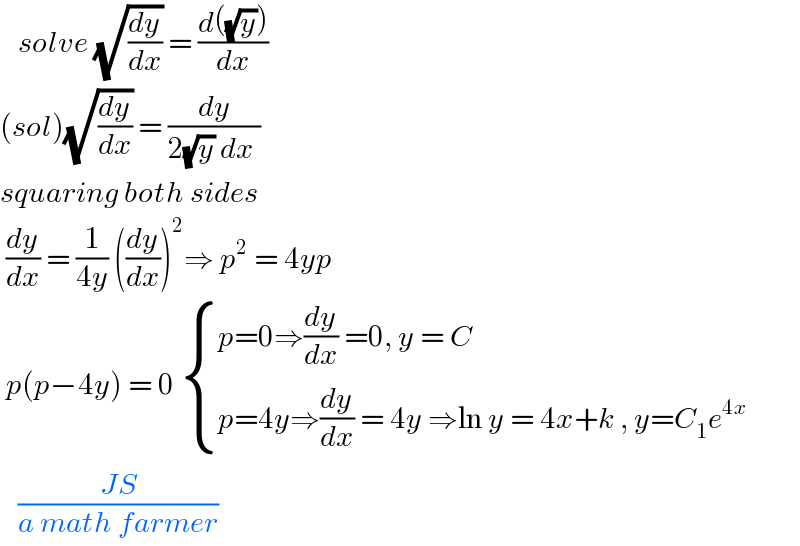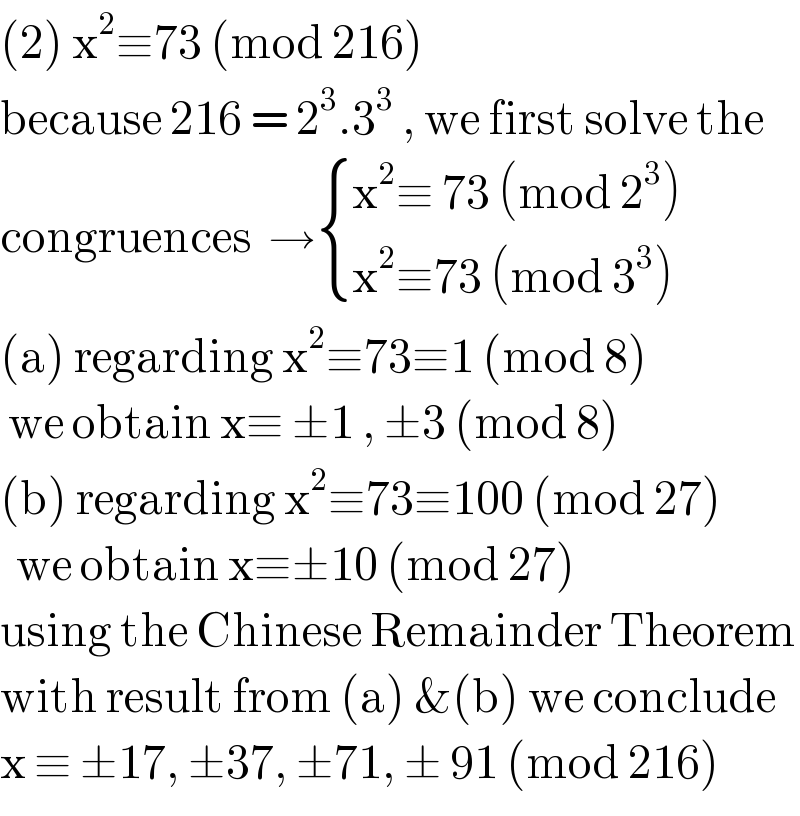
Question and Answers Forum
Previous in Differential Equation Next in Differential Equation
Question Number 113060 by bemath last updated on 12/Sep/20

Answered by john santu last updated on 11/Sep/20

Commented by bemath last updated on 11/Sep/20

Answered by bobhans last updated on 11/Sep/20

Answered by bobhans last updated on 11/Sep/20

Commented by Rasheed.Sindhi last updated on 11/Sep/20

Commented by 1549442205PVT last updated on 12/Sep/20

Commented by bemath last updated on 12/Sep/20

Commented by Rasheed.Sindhi last updated on 12/Sep/20

Commented by bemath last updated on 12/Sep/20

Commented by bemath last updated on 12/Sep/20

